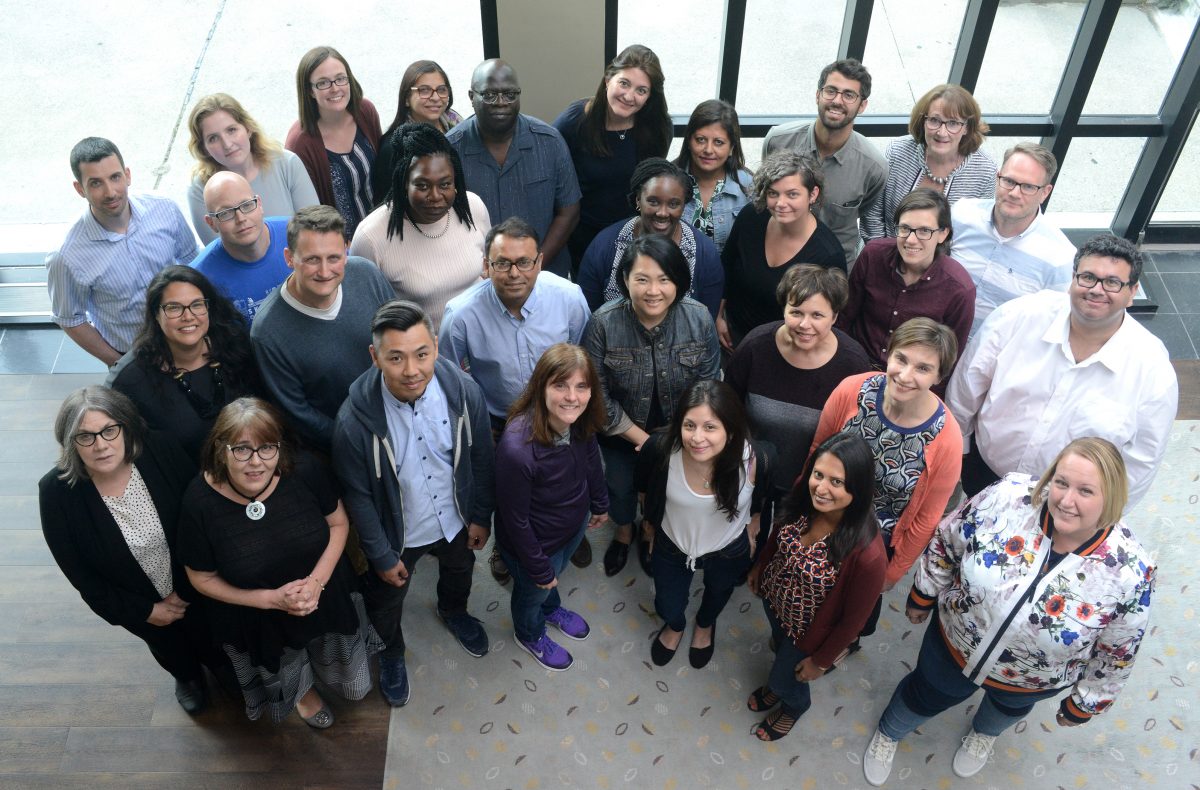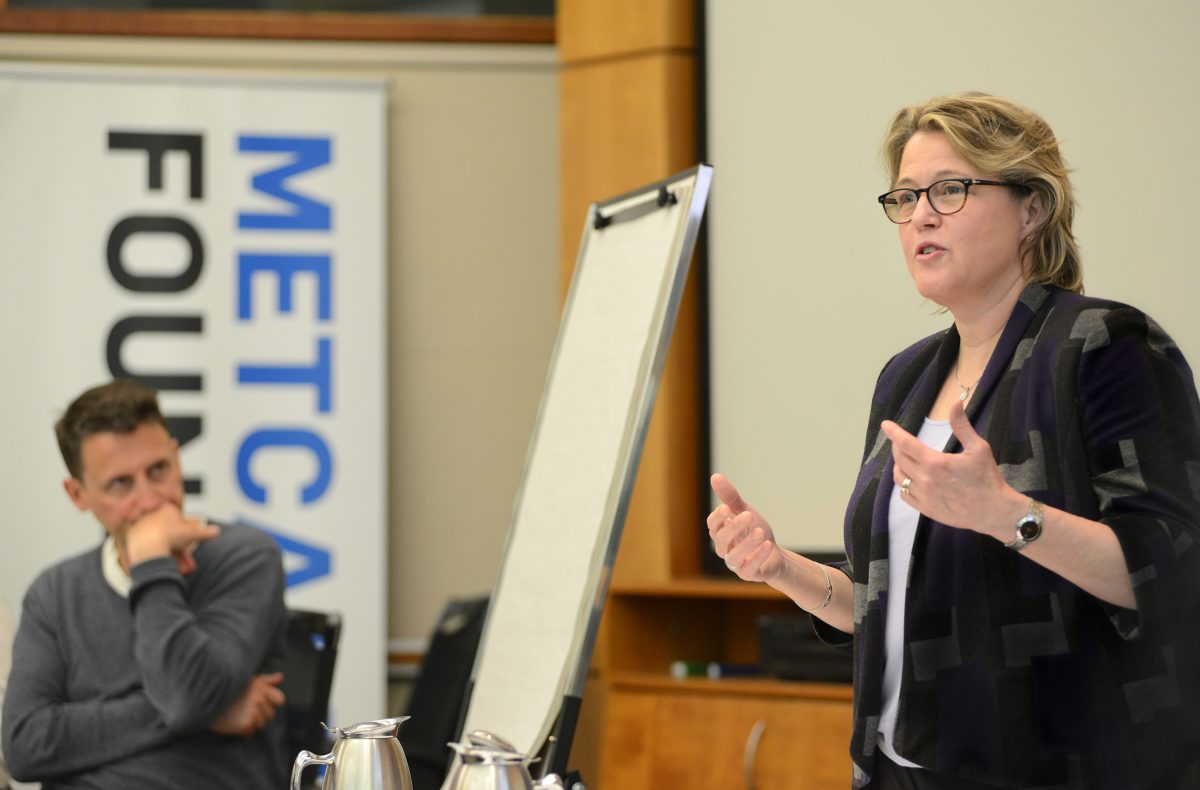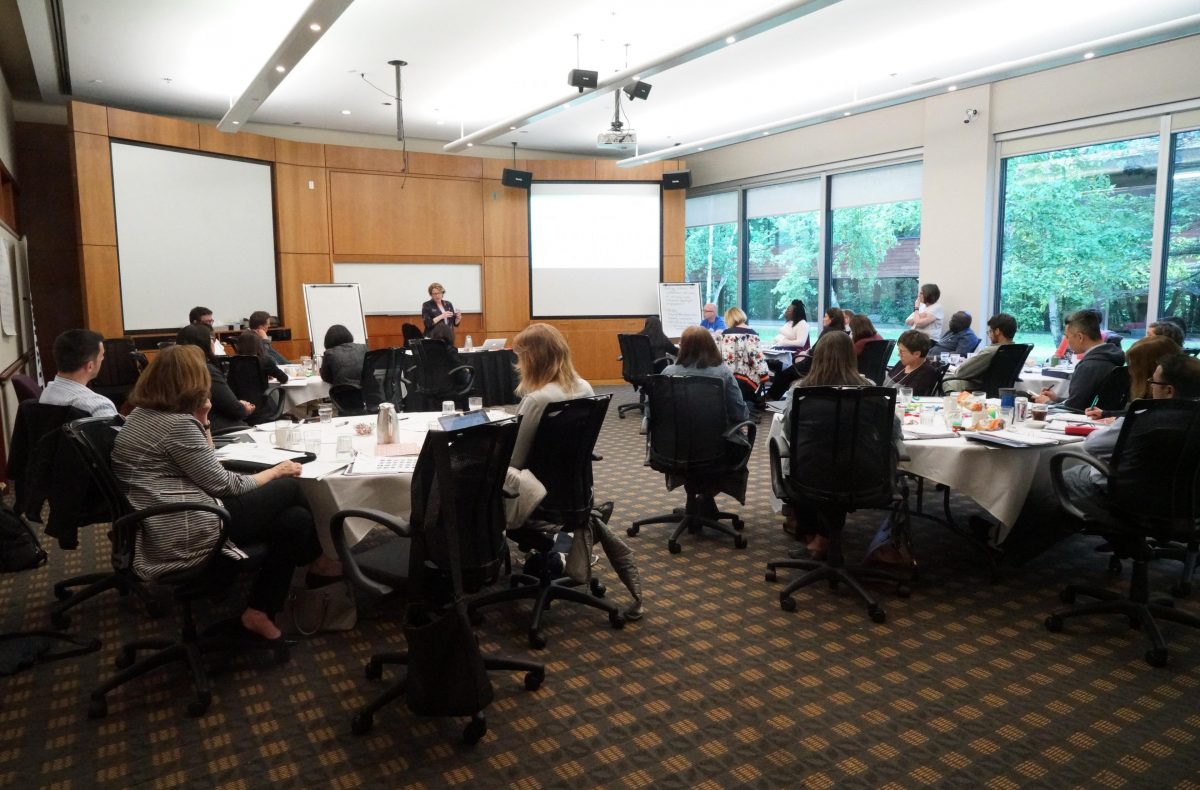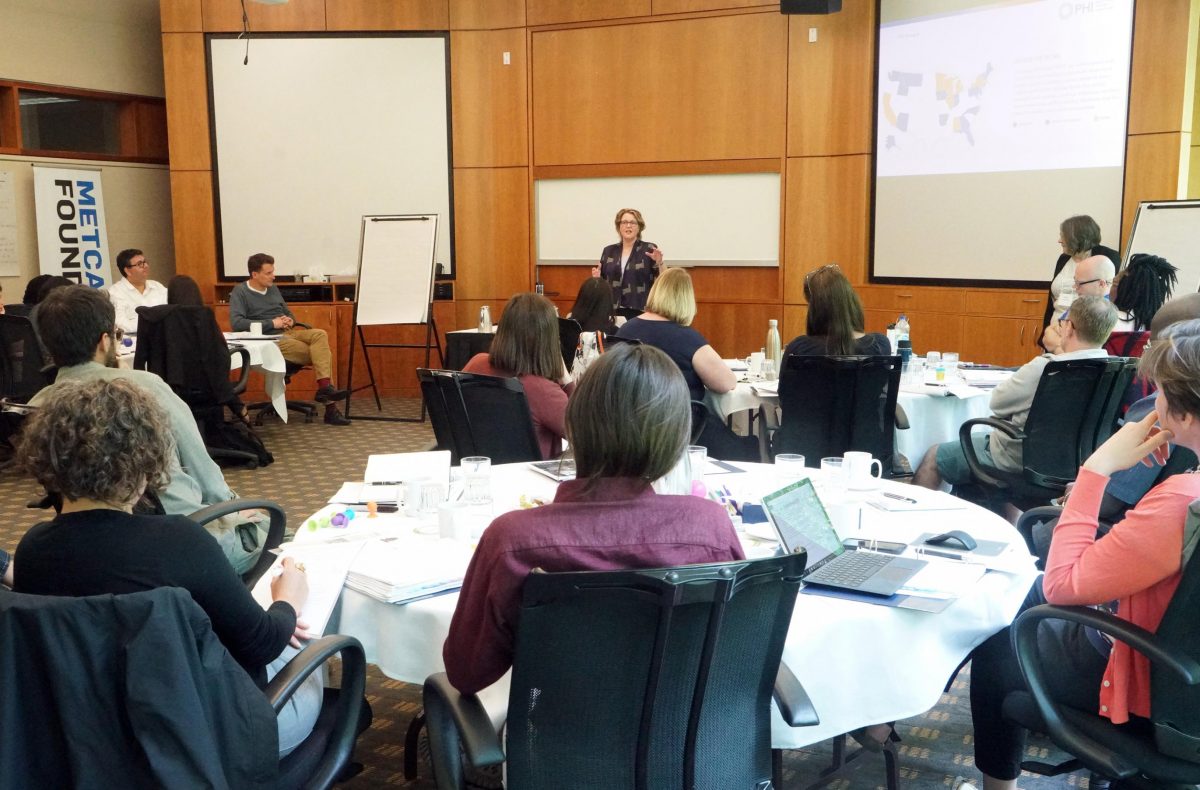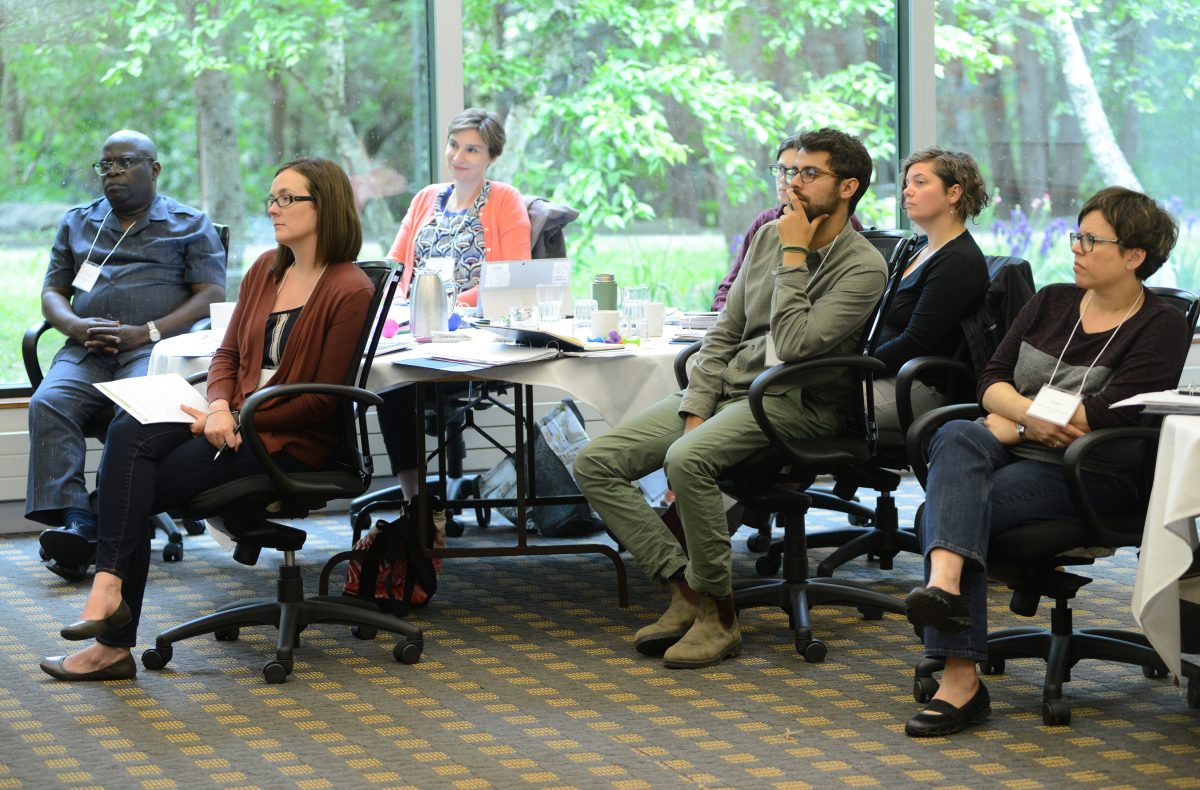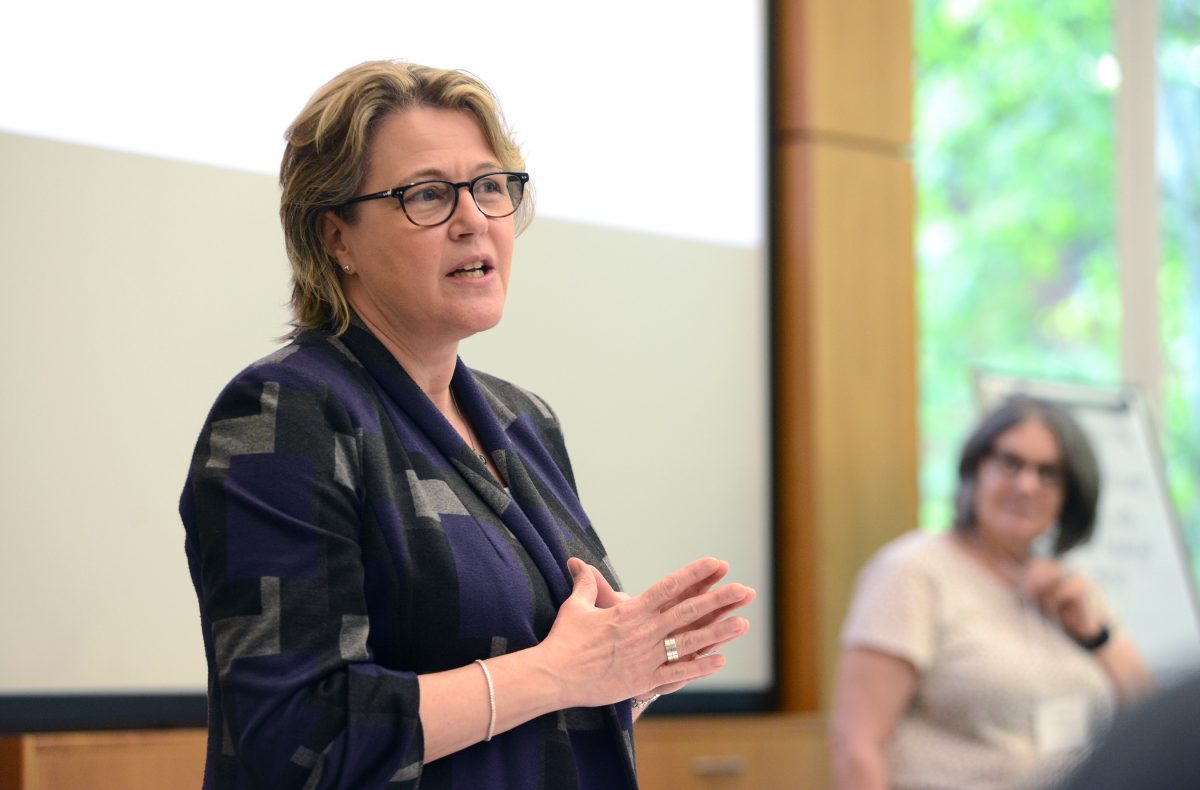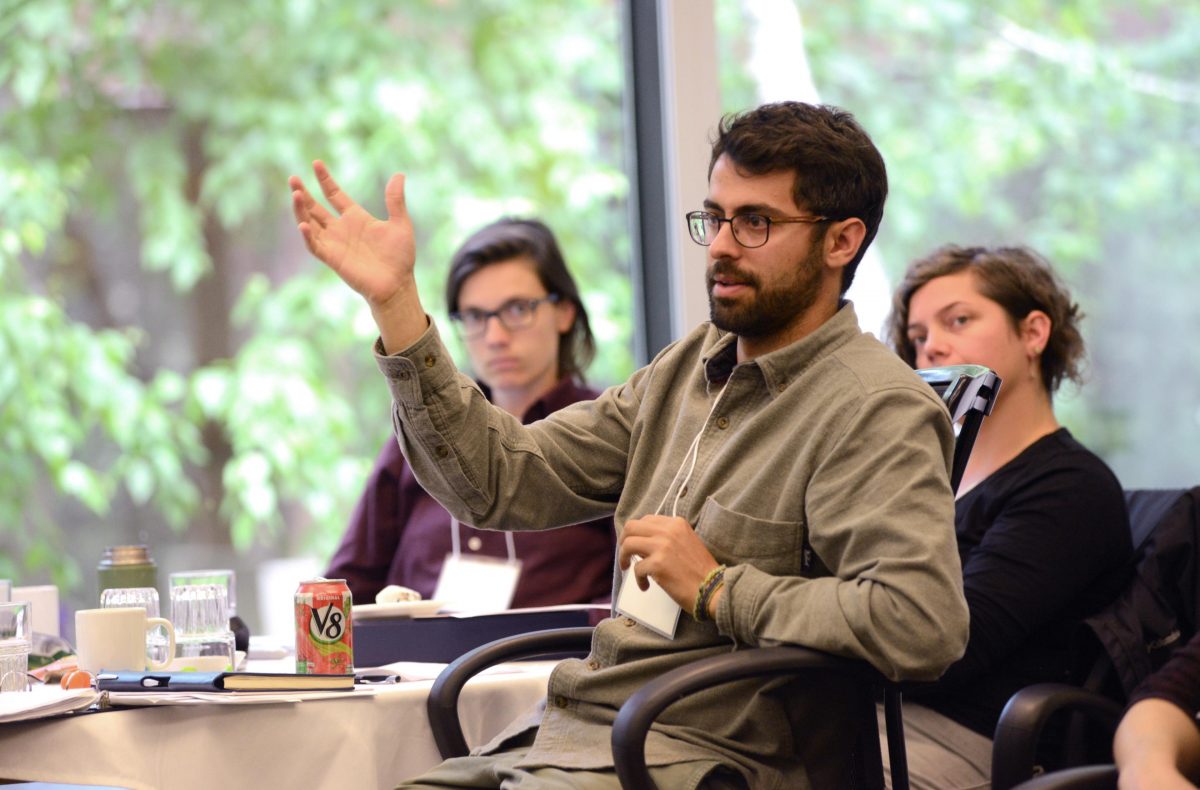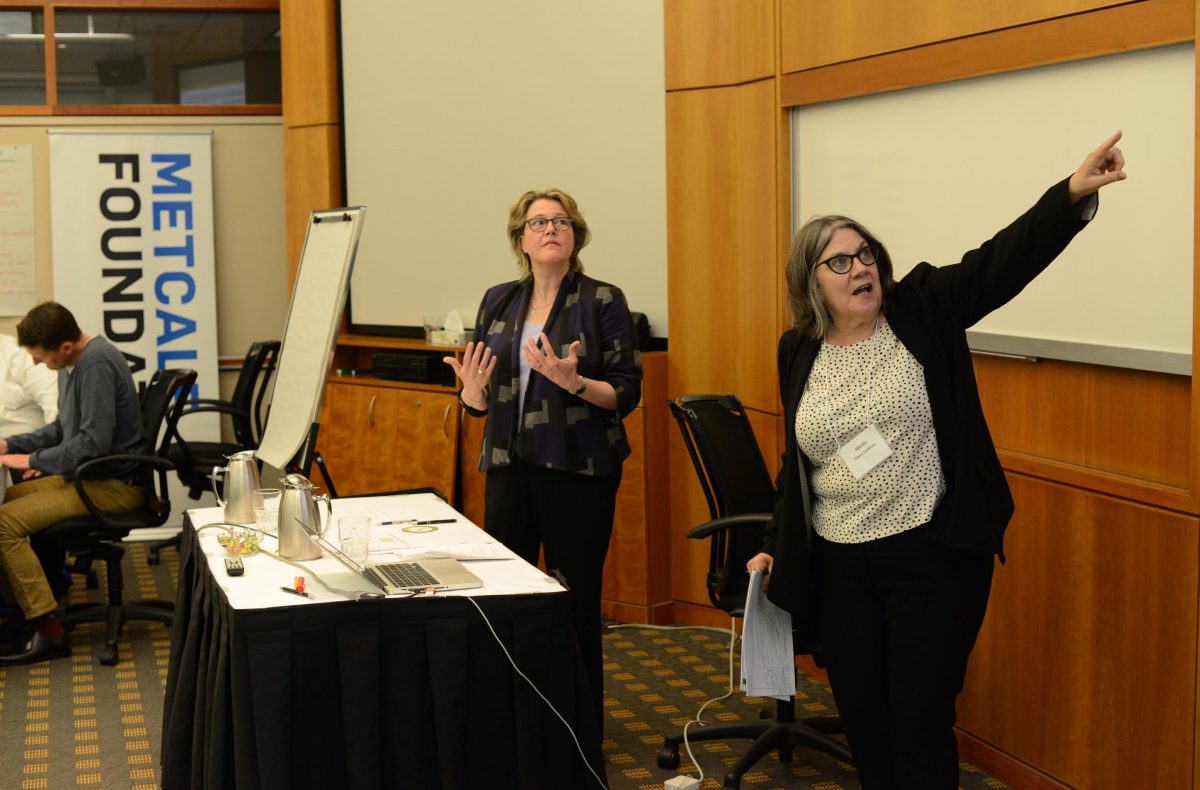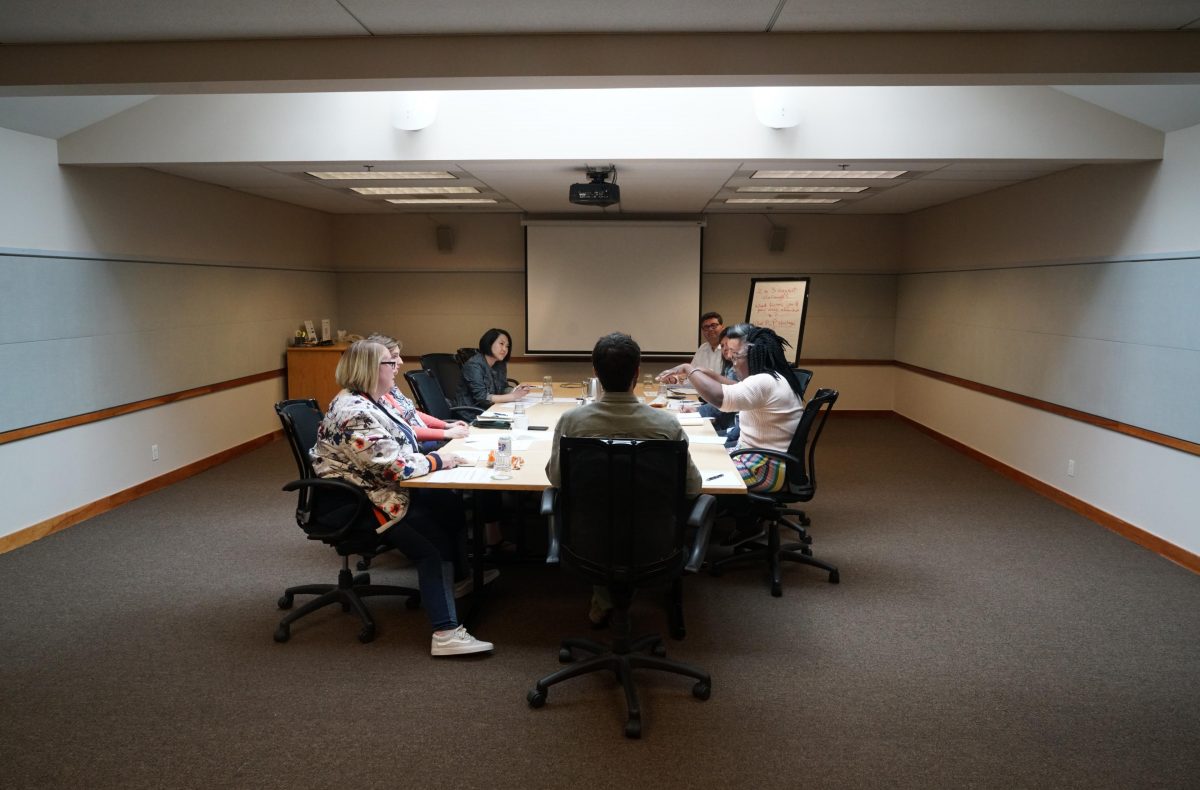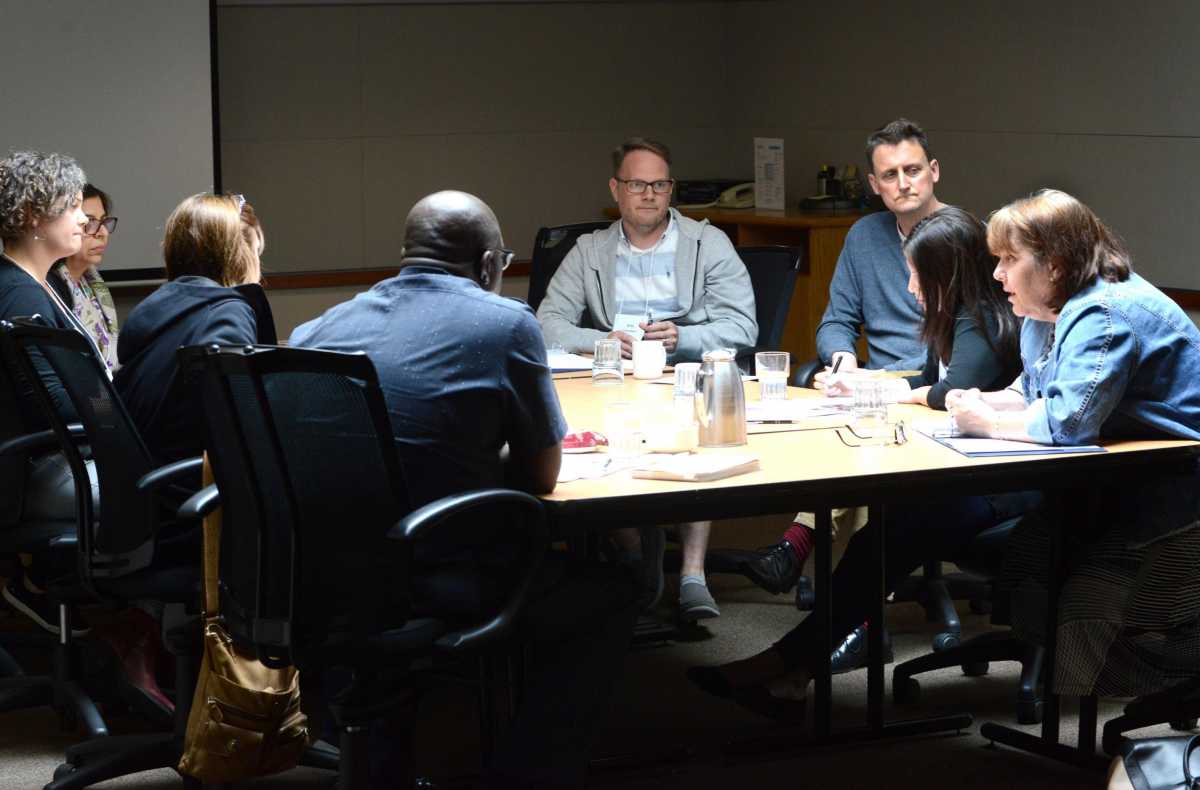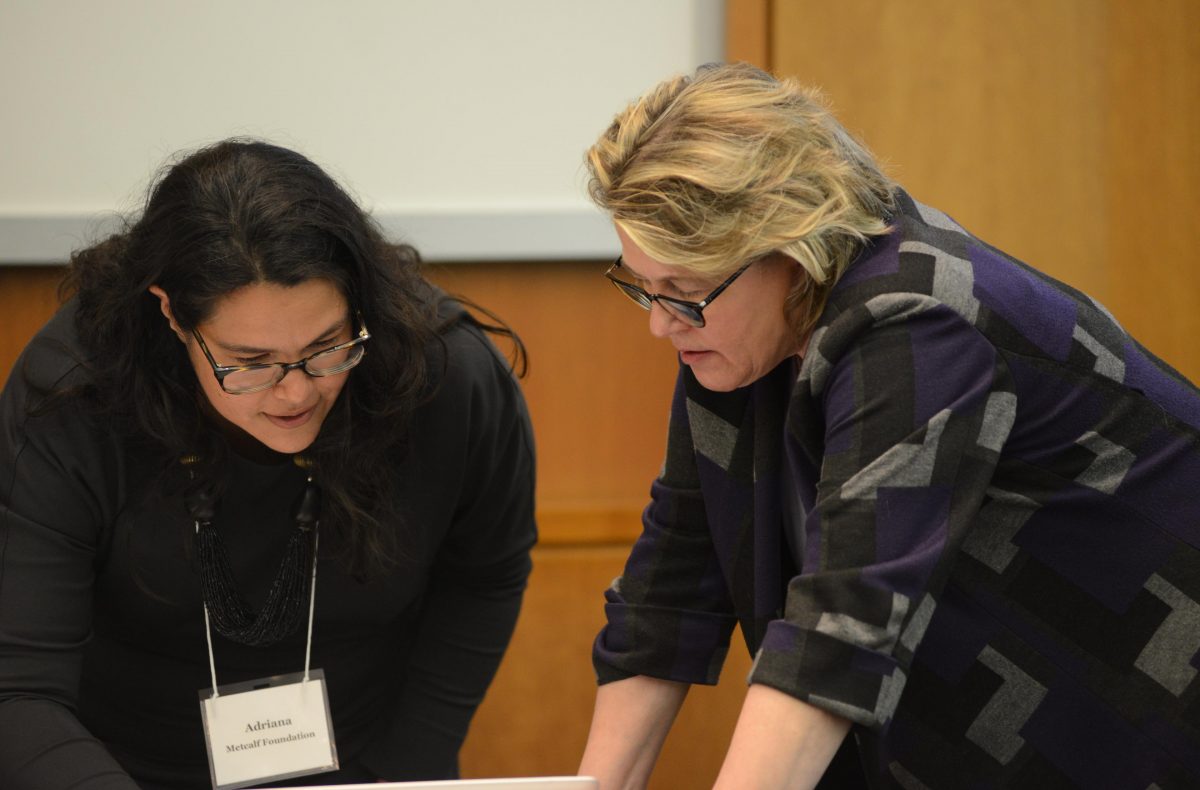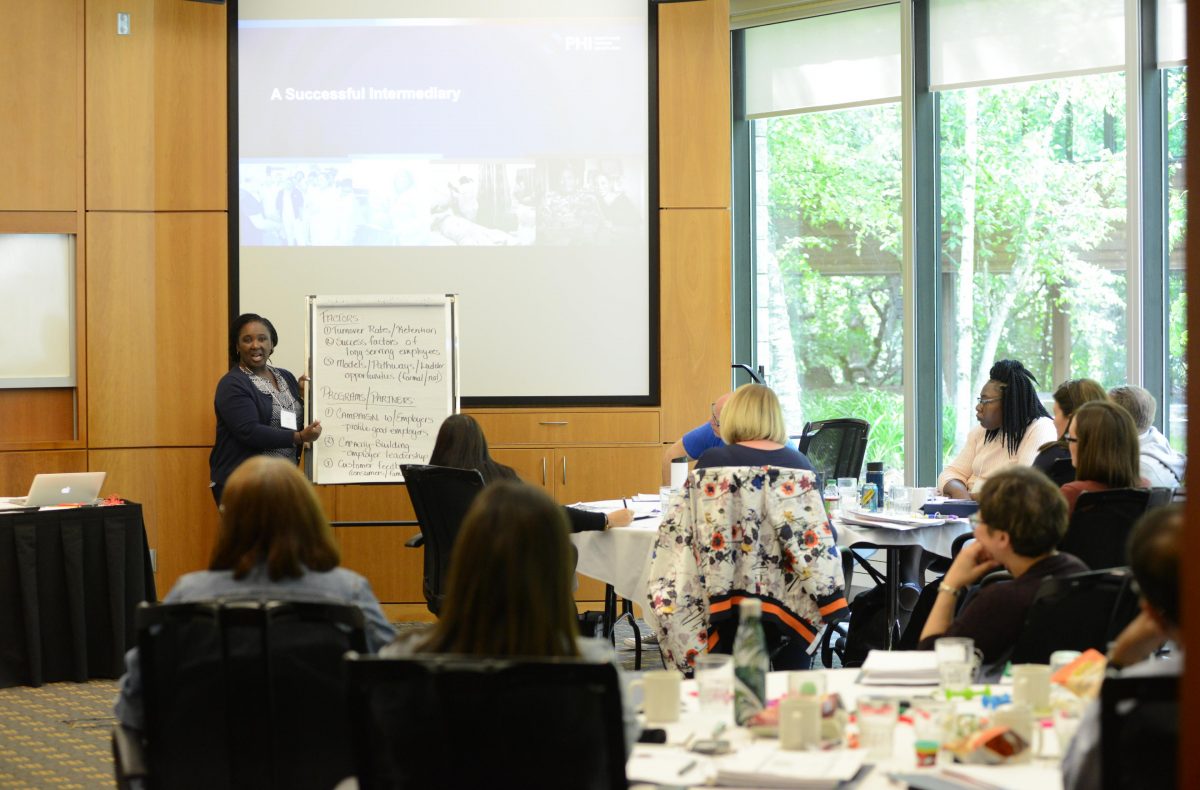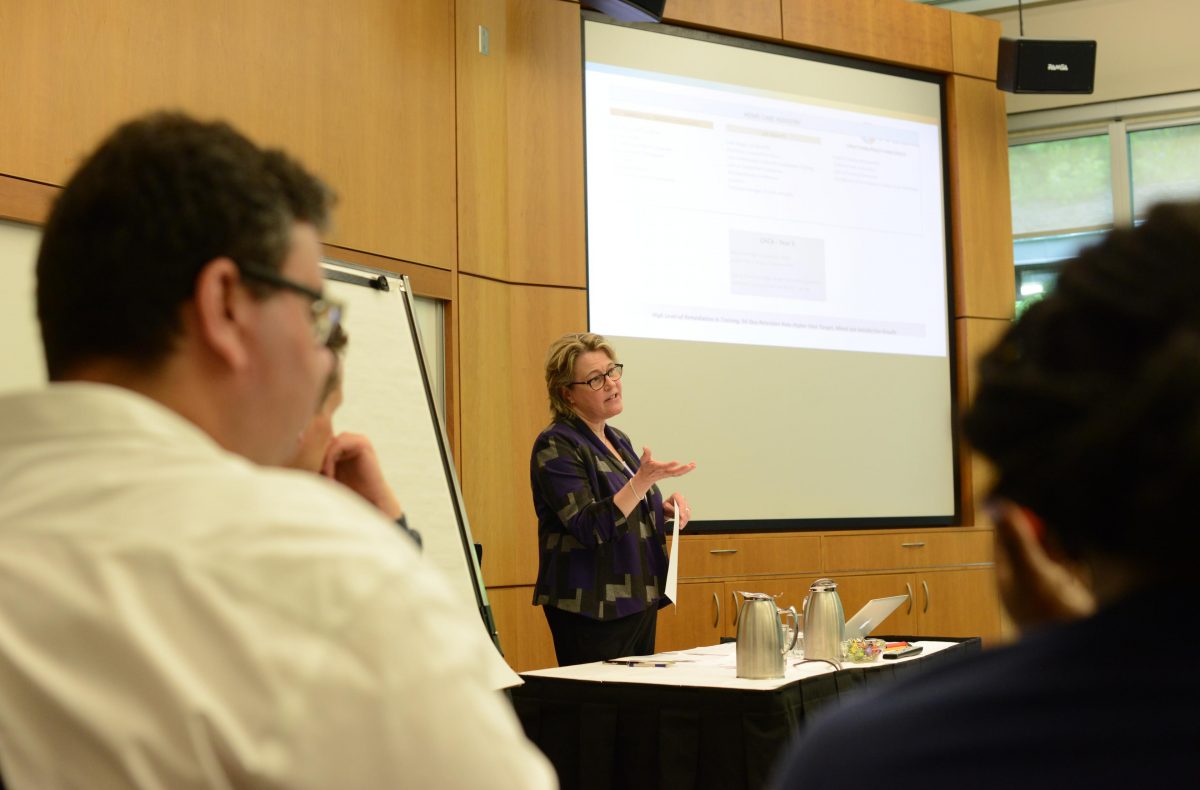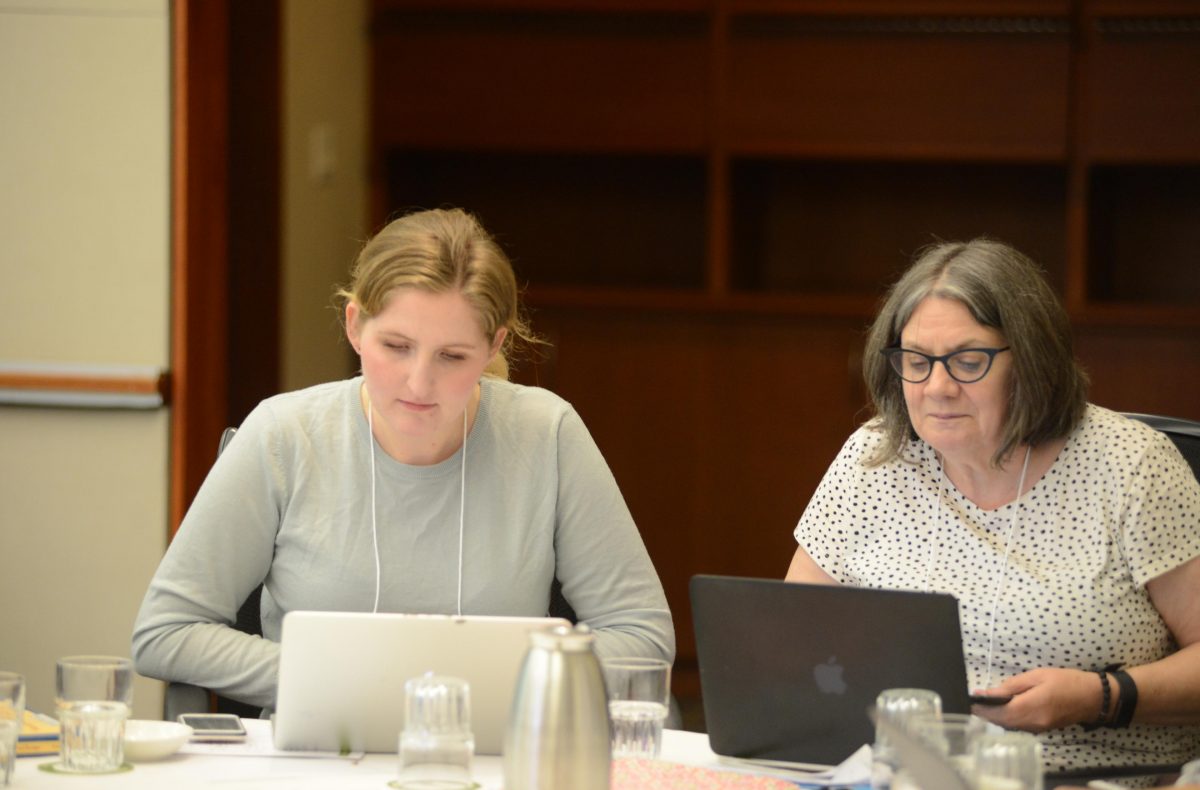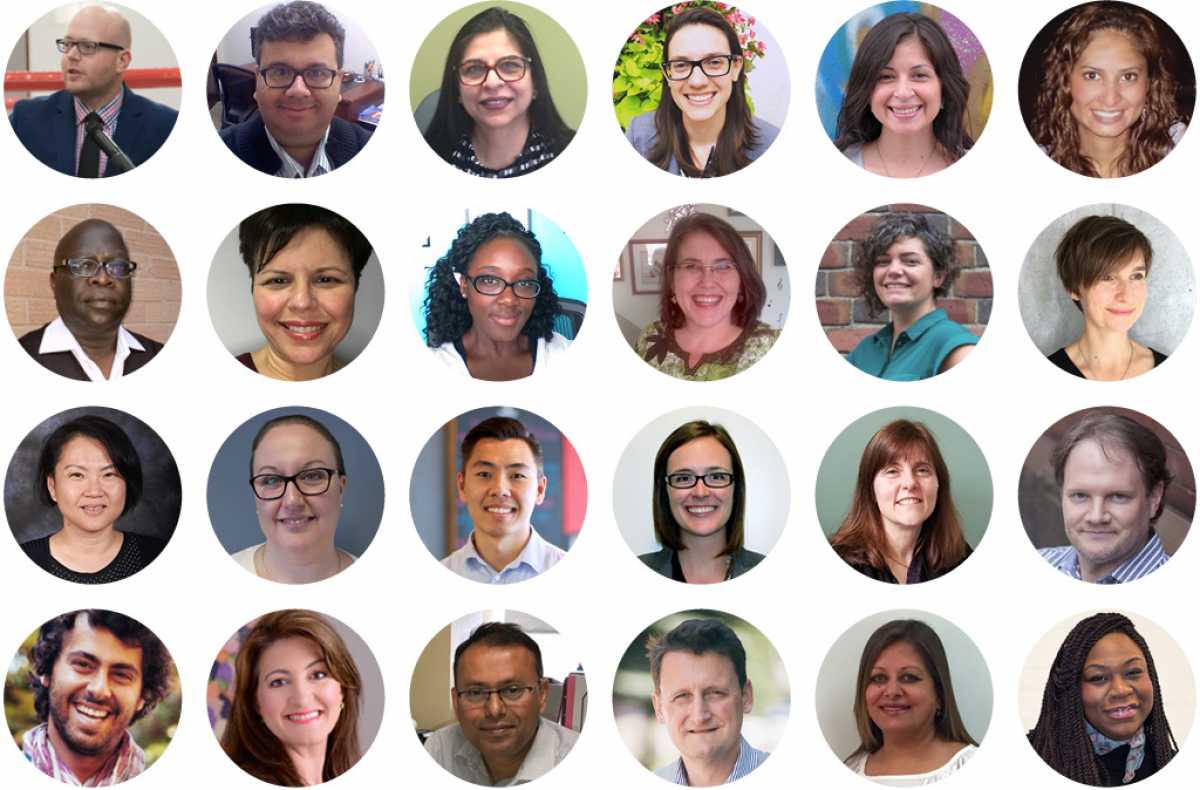At the June retreat of the 2018 Toronto Sector Skills Academy, PHI President Jodi Sturgeon presented a case study that focused on her organization’s approach to improving job quality, workforce opportunity, and career mobility for direct care health workers (known in Ontario as personal support workers). The Toronto Sector Skills Academy (TSSA) is a 10-month fellowship for workforce leaders focused on improving employment outcomes for low-income workers in the Greater Toronto Area. It is led by the Metcalf Foundation, with support from the Counselling Foundation of Canada and Social Capital Partners, and in partnership with the Aspen Institute’s Economic Opportunities Program. The Toronto Sector Skills Academy invites guest faculty from across North America to present case studies on innovative workforce development policy and practice. The use of case studies allows fellows to examine complex workforce challenges, discuss best practices and systems change strategies, and consider the implications for their own work going forward.
